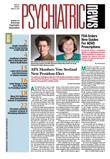Members of Congress told physicians at a meeting in February that broad changes are needed to expand Americans' access to health care, but efforts in the short term likely will be modest.
A bipartisan group of four congressional leaders told attendees at the 2007 AMA National Advocacy Conference that changes are needed to expand coverage, control costs, and protect the medical profession in the near future. Although the physicians repeatedly cited the need for drastic changes, the legislators focused on more limited steps to improve the system.
Sen. Deborah Stabenow (D-Mich.), a member of the Senate Budget and Finance committees, said Medicare already provides one type of universal coverage, and the challenge is figuring out a way to expand that to the rest of those who lack health insurance.
In the nearer term, stabenow plans to introduce legislation to establish a commission charged with devising ways to replace the much-maligned formulas that determine what reimbursement physicians receive for treating Medicare patients.
“Cutting back on Medicare and Medicaid payments isn't going to make them better,” she said. Projected Medicare payment cuts to physicians that could reach 40 percent over the next eight years will impact patients' access to care and physicians' ability to practice medicine. Reform of the Medicare physician-payment system is the AMA's top 2007 advocacy goal.
Rep. Dave Camp (R-Mich.) criticized a recent report from the Medicare Payment Advisory Commission that recommended Medicare lower the physician reimbursement under Medicare Advantage plans to the same rate as the traditional fee-for-service program. The reduced reimbursement, an option under consideration in Congress, would result in a loss of some benefits access to providers in rural areas, Camp said.
Sen. Richard Burr (R-N.C.), the senior Republican on the Health, Education, Labor, and Pensions subcommittee on Retirement and Aging, said he also supports increasing physician reimbursements in federal programs. He noted the success of his state's Medicaid waiver that led to increased physician participation by increasing reimbursements.
“We created a relationship between patient and doctor to get disease management and delivery at the most cost-effective entry point, instead of in the emergency room,” Burr said.
The rising costs and increasing barriers to accessing medical care need to be addressed to protect patients and physicians, the members of Congress said. Burr said changes to health care financing need to provide a sustainable system; otherwise, the medical profession will no longer attract gifted people.
Instead of continuing Medicare reimbursement cuts, Stabenow said, she supports widespread adoption of health information technology (HIT), which could provide up $90 billion in annual savings, according to a Rand Corporation study.
Rep. Frank Pallone (D-N.J.), chair of the Energy and Commerce Subcommittee on Health, criticized the impact that reduced reimbursements are having on the medical profession. Like the other members of congress, he said the long-term solution lies in some type of comprehensive health insurance program, such as one his state's legislators are considering. However, more robust federal assistance will be critical to make such systems function, he acknowledged.
Pallone echoed the need to increase the public health programs' reimbursements to reverse an emerging “crisis” in access to care for patients in those programs.
Burr said that the Democratic leadership was unlikely, however, to advance another leading AMA advocacy issue—medical-liability legislation limiting financial damages in malpractice suits. Stabenow said a cap on lawsuits in Michigan had little effect on rising malpractice insurance premiums. Better results were likely to come from the expanded use of HIT, which is designed in part to reduce medical errors, she said.
To expand adoption of such technology, she plans to reintroduce a bill to provide tax credits physicians can use to write off the costs of computer equipment associated with HIT and to increase Medicare payments for physicians who use HIT.
Pallone and stabenow urged physicians to support increased funding for Medicaid's State Children's Health Insurance Program (SCHIP). President Bush's proposed budget includes a five-year SCHIP increase of $5 billion and limits new enrollees to children in families with incomes below 200 percent of the federal poverty level—about $38,000 for a family of four (see
page 6). Democrats cited a Congressional Research Service estimate that $15 billion is needed over that time just to maintain coverage for the program's existing enrollees. The Bush administration estimates that limiting SCHIP's growth to $5 billion will reduce the number of enrollees from 4.7 million to 4.3 million.
Stabenow said the Senate Finance Committee will reauthorize SCHIP and push to include an additional $12 billion beyond the president's budget to expand the program over the next five years. “We know that to do it [SCHIP reauthorization] right will mean expanded coverage,” she said.
Democrats estimate that at least $35 billion to $45 billion more than Bush proposed is needed over five years to reach SCHIP-eligible but uninsured children. Pallone urged physicians to support efforts to build on existing federal health care programs, such as SCHIP, to expand eligibility and allow more people to sign up for them.
Rising drug costs also drew calls for federal action from the members of Congress. Stabenow plans to introduce legislation with Sen. Trent Lott (R-Miss.) to “close patent loopholes” and expand the availability of generics. ▪
